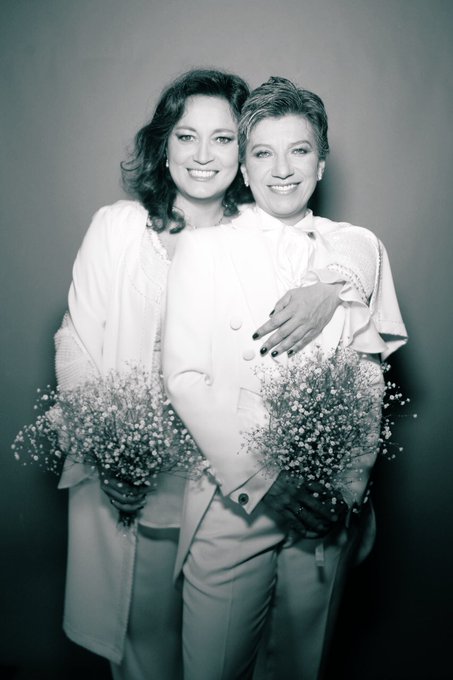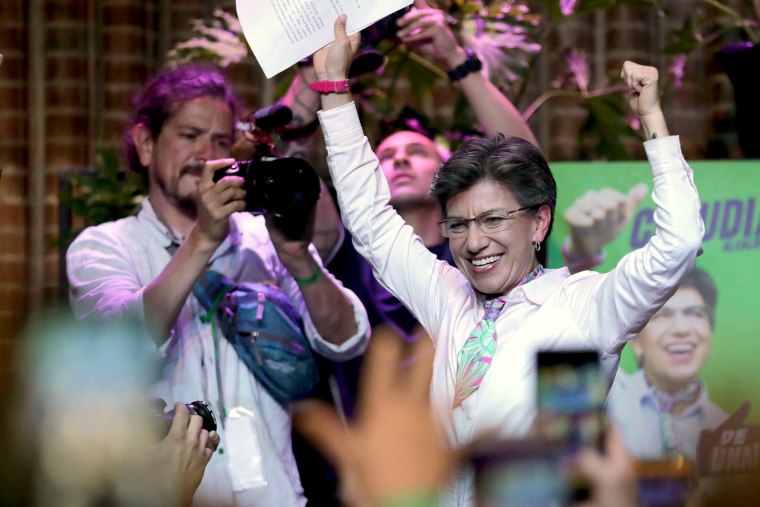‘Celebration of Trans Filmmakers’ to Happen in SF and P Town Jan 9-10
Saint Joseph’s Arts Society and Ken Fulk, the design impresario behind the revitalization and reimagination of the historic former church, now exhibition space and arts club, announces a CELEBRATION OF TRANS FILMMAKERS at its upcoming Provincetown Film Society’s COMING OUT 2020 Party in SAN FRANCISCO to fund a new mentorship and scholarship program for emerging Trans Actors.
At the event, we will recognize the work of POSE executive producer, writer and director Silas Howard and showcase the work of up-and-coming talents Zach Barack from Spiderman: Far From Home and The Transparent Musical Finale and Zoey Luna of 15: A Quinceañera Story, The T Word, the television series Pose, and the upcoming reboot of The Craft where she plays Lourdes a trans teen. Russell Boast, President of the Casting Society of America, will also present the Persistence of Vision Award to Ann Thomas, Principal and Founder of Transgender Talent, LLC, the only talent management company dedicated to casting trans talent.
The two celebrations will be held on Thursday, January 9 and Friday January 10 in San Francisco, both at Saint Joseph’s Arts Society Club 1401 Howard Street.
Thursday January 9: COMING OUT PARTY 2020
7 pm – 11 pm
Tickets to the fund-raising event are $250 at http://www.provincetownfilmsociety.org
Friday, January 10: COMMUNITY FORUM
10 – 5 pm; public is invited to attend a community forum titled CHANGING THE CULTURAL NARRATIVE: TRANS STORIES IN U.S. ENTERTAINMENT MEDIA
Free with advance registration at http://www.provincetownfilmsociety.org
Thanks to high profile shows such as Ryan Murphy’s Emmy-winning series POSE, opportunities for trans actors have deepened. Yet, the economic, educational, and social disadvantages caused by discrimination that transgender and nonbinary people experience throughout their lives, makes it especially challenging for emerging trans actors to access the
basic tools needed to secure auditions, let alone jobs.
To tackle some of the disparities in the industry, a portion of the proceeds from the event will support a year-round scholarship and mentorship program for emerging trans actors, including a financial stipend, hands-on professional training, industry meetings and exclusive access to PFS’s year-round programs, held in Provincetown, MA, America’s oldest arts colony and a mecca for LGBTQ diversity and inclusion.
Provincetown Film Society CEO, Christine Walker said, “It is no coincidence that we are launching a game-changing program for transgender artists in a city that represents a beacon of hope and light for the LBGTQ community around the world. While we are geographically positioned quite literally at opposite ends of this vast country, we share a common belief in supporting equality and creativity in all of its forms.”
Honoree Ann Thomas said, “It’s been nearly five years since I started Transgender Talent. Back then, the biggest complaint I heard was about a desperate need for new transgender faces. If trans people had easy access to fulfill their dreams of becoming a trained actor, we’d have no shortage today. But with the systematic repression we’ve faced, the growth has been extremely slow. Only those with some measure of family support have been able to succeed. With the kickoff of the transgender scholarship and mentorship program, we can begin to see young trans people have hope for the future!”
In addition to Silas Howard, Zach Barack, Zoey Luna, and Ann Thomas, other panelists include: Russel Boast, President of the Casting Society of America and the head of its Inclusion and Diversity programs; San-Francisco-based Producers Marc Smolowitz of 13th Gen Company and Stefano Gonzalez, Transfinite producer; and many others.
Providing opportunities for artists to experience Provincetown, as so many of the great artists of the last century from Robert Motherwell to John Waters have been able to do, is a passion shared by the Provincetown Film Society and Ken Fulk, whose team of designers have restored many of the town’s historic structures and are working to preserve America’s artistic heritage. His most recent project is the Mary Heaton Vorse House which will be made available for artists residencies from a variety of disciplines.
Ken Fulk said, “Despite of its diminutive size and remote location, Provincetown has played an outsized role in cinema history for more than a century. The Provincetown Film Society has continued this tradition by creating and supporting inspirational films and filmmakers for the past two decades. We at Saint Joseph’s Arts Society are thrilled to welcome them to San Francisco for ‘Coming Out 2020.’ We invite all our supporters and friends to join us for the spectacular party to benefit trans filmmakers as well as the ground-breaking symposium we’re hosting that will offer professional development to trans actors, filmmakers, producers and writers. I am honored to share this incredible organization from my beloved Provincetown with our Saint Joseph’s community.”
The event is also co-presented by SFFILM — along with the Bay Area’s The Representation Project, partners with PFS on its fourth annual Women’s Media Summit for Gender Equity in U.S. Entertainment Media.
At press time, event sponsors include:
PRESENTER: Stephanie Dillon & Fleur de Junk
SUPPORTER: DKR Films, East End Books
MEDIA: Larsen Associates Film PR & Corey Tong
Community Co-Presenters:
The Representation Project
SFFILM
For Calendar Editors:
COMING OUT PARTY 2020: A CELEBRATION OF TRANS FILM MAKERS
Thursday, January 9
7 pm – 11 pm
Saint Joseph’s Arts Society, 1401 Howard Street, San Francisco, CA 94103
Tickets are $250 and available at http://www.provincetownfilmsociety.org
COMMUNITY FORUM: CHANGING THE CULTURAL NARRATIVE: TRANS STORIES IN U.S.
ENTERTAINMENT MEDIA
Friday, January 10
10 am – 5 pm
Saint Joseph’s Arts Society, 1401 Howard Street, San Francisco, CA 94103
FREE with registration at http://www.provincetownfilmsociety.org
###
About Ken Fulk:
Ken Fulk is a designer and creative director of Ken Fulk, Inc, and renowned for his layered interiors and over-the-top parties. With a team of 50 “magic makers” to help bring his ideas to life, Fulk leads a team of architects, designers, branding and event specialists in both San Francisco and New York.
The Virginia-born designer has spent the last 20 years developing a business from turning his clients’ dreams into reality. Fulk has become the curator of lifestyles, not only designing homes, restaurants and hotels but also choreographing unforgettable weddings, parties and family getaways.
In recent years, Ken Fulk has expanded his impact around the globe. In addition to current residential work from Mexico to Miami and Provence to Provincetown, Ken Fulk is making his mark in New York with a new concept for rental residences on West 38th Street in New York, slated to open this spring. Designed like a boutique hotel with a lobby restaurant and rooftop lounge, the 224-unit building will offer residents a taste of Fulk’s extraordinary experiences, from interior design and party planning to weekly floral market and guest performances.
About Saint Joseph’s Arts Society:
The St. Joseph’s Art Society is a new membership club created to inspire dialogue on the arts, fashion, food, craftsmanship, design and tech. Based out of a National Historic Landmark in San Francisco, the 1913 Saint Joseph's Church has been revitalized as a haven, a forum and a source of inspiration for artists, patrons and the public.
About Provincetown Film Society:
The Provincetown Film Society (PFS) is an advocate for diverse representation in film, providing year-round programming and platforms that allow voices of all kinds to be heard via film. Locally, PFS’ work positively impacts the cultural and economic vitality of Provincetown. Nationally, its work helps shape industry discussions around parity in film. Through PFS’ work, we have an ability to better understand and appreciate human struggles and triumphs, showcasing our similarities and differences in today’s diverse culture.
Now in its 22nd year, PFS began as a yearly film festival serving 12,000+ attendees with its signature Filmmaker On the Edge(®) presentations with such luminaries as Darren Aronofsky, Patricia Clarkson, Sofia Coppola, Ang Lee, Jane Lynch, Chloë Sevigny, Tilda Swinton, Quentin Tarantino, John Waters, Debra Winger and others. In 2015, under the leadership of CEO Christine Walker, PFS has expanded to a year-round institute serving emerging and established filmmakers and co-founding the first women’s media summit in the country to address equity in U.S. Entertainment media. This year, PFS will announce a new partnership with The Representation Project to expand the program to San Francisco and Los Angeles.
About The Representation Project:
Using film and media as catalysts for cultural transformation, The Representation Project inspires individuals and communities to challenge limiting gender stereotypes and shift norms. Jennifer Siebel Newsom founded The Representation Project, a 501(c)(3), in 2011 in response to the overwhelming public demand for ongoing education and social action in support of her first film, Miss Representation. Since then, The Representation Project released Newsom’s second film, The Mask You Live In, and third film, The Great American Lie. The organization has become well known for creating popular social media activism campaigns such as #NotBuyingIt, #AskHerMore, and #RepresentHer.









